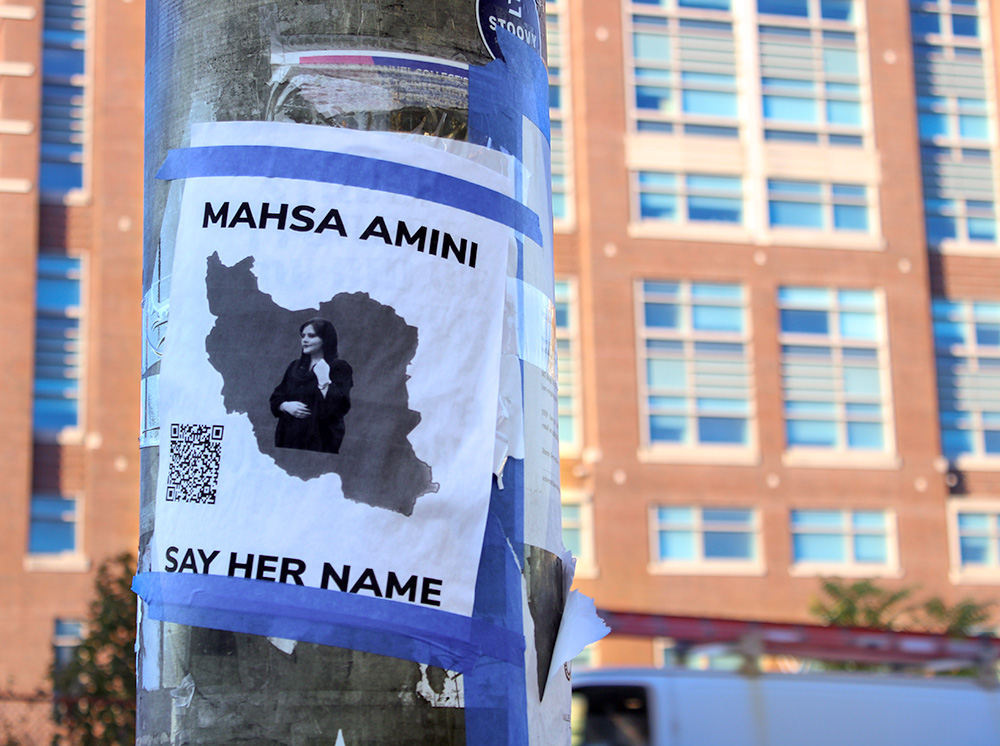
The Persian Student Association at Boston University held a candlelight vigil for 22-year-old Mahsa Amini and the women of Iran at Marsh Plaza Sept. 29.
Amini was arrested by Iran’s morality police for wearing an “improper hijab” Sept. 13, fell into a coma and died three days later in police custody, according to a press release by United Nations Human Rights. Iranian authorities said she died of a heart attack and natural causes. However, other reports suggested she was tortured.
PSA Treasurer Sabrina Abselet, a sophomore in the College of General Studies, said after restarting the PSA this year, she and other students put on the vigil to shed light on the events in Iran.
“We just wanted … [to] memorialize the lives that have been lost, and bring awareness to the Western world what’s going on in the East,“ Abselet said.
Ayda Shakeri, the president of PSA and sophomore in CGS, opened the vigil by explaining why they gathered. She said in her speech Amini is just one of many women who have been “unjustly treated” by the government.
“As time passes, I’m even more ashamed towards the Iranian regime for not upholding the same Iran that my parents grew up with,” Shakeri said, “a nation of freedom, a nation of free will, the right to practice whatever you desire, the right to wear whatever you want.”
Since Amini’s death, thousands have protested in cities across Iran to end violence and discrimination against women in the country, according to the UN.
Yasmin Ghomashchi, a junior in the College of Arts and Sciences who lived in Iran for the first 16 years of her life, said Amini’s death was the “final straw which led to a series of protests” that police are trying to stop.
“They are shooting people and tear gassing them, they’re spraying acid on them, and essentially doing whatever they can to stop the protests,” Ghomashchi said. “Thankfully, it’s still going, and it’s really nice that Iran is getting the media representation that it gets.”
Hannah Shahbazi, secretary of the club and sophomore in CGS, said in her speech at the vigil she used to resent the country for the fear it bestowed on her after witnessing the violence the government imposed on its people at 6 years old.
“I realize now that my hate is not towards the beautiful country and its people but rather the unjust government which holds power and decimates freedom,” Shahbazi said.
Abselet said it’s important to acknowledge that feminism is intersectional.
“If you’re not showing up and you’re not speaking for the women of Iran, but you speak for other problems, that definitely shows to the problem,” Abselet said. “It definitely involves countries that are not white.”
This is an “incredibly stressful time” for Ghomashci and others who have friends and family still in Iran, as she said she hasn’t been able to contact them.
“I’ve had people that I’ve been in touch with since middle school who are in police custody, and I haven’t heard from them,” Ghomashci said. “I’m not able to contact my family because they don’t have access to the internet.”
Abselet said she wants the protests and activism to continue and for everyone to do what they can to support women in Iran.
“Don’t stop fighting now, cause it is only the beginning,” Abselet said. “This could be the beginning of the end of the regime, which is really exciting.”















































































































